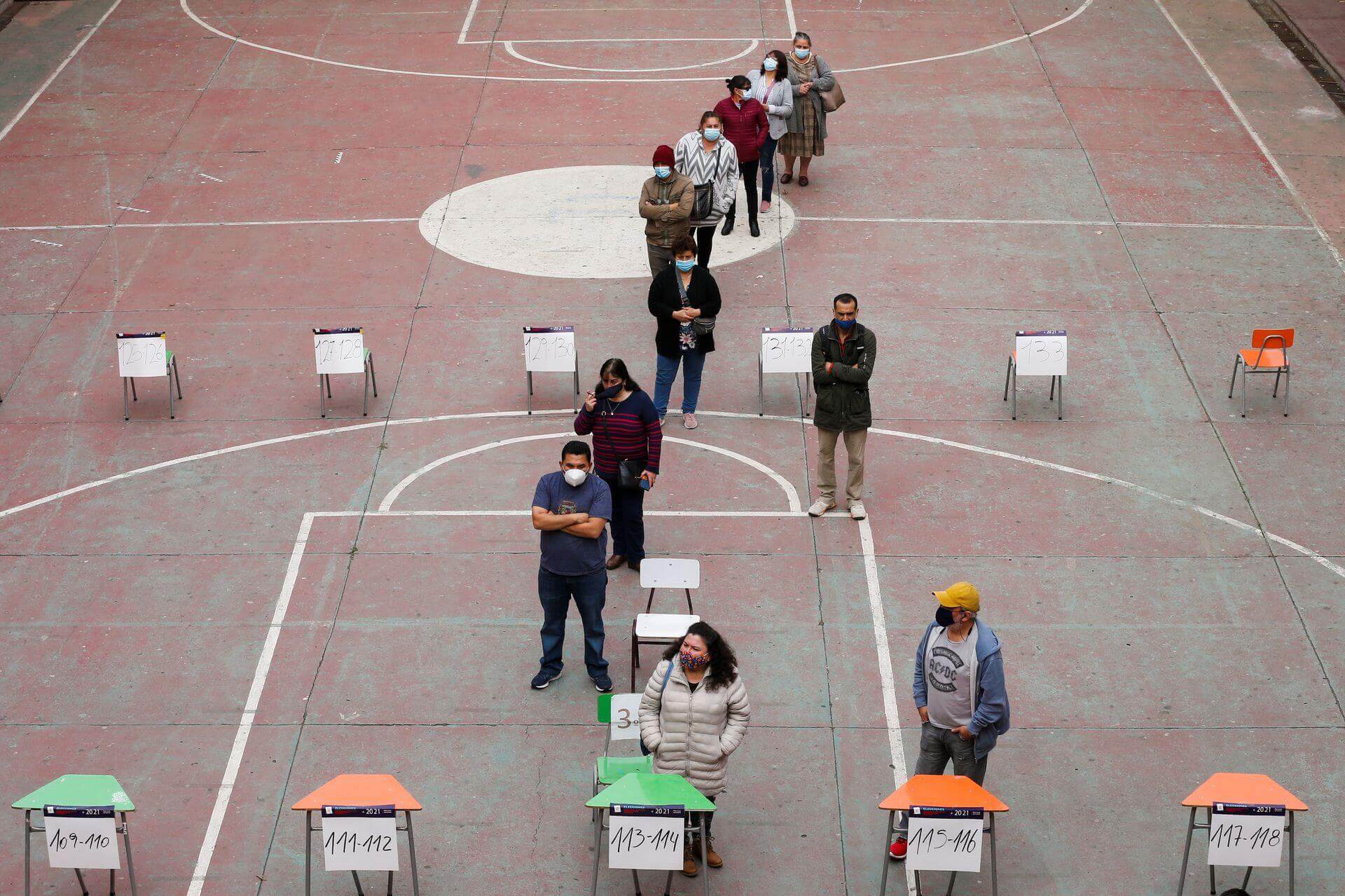Chile’s centre-right ruling coalition has been delivered a stinging blow in its bid to influence the drafting of the country’s new constitution, as results indicate that citizens have overwhelmingly voted for independent and opposition candidates to form the drafting committee. As per the rules guiding the process, blocking any proposals requires the support of one-third of delegates in the body. However, seeing as pro-government candidates have only won about one-fourth of the seats, the ability of the Piñera administration to block and radical changes has been severely undercut.
At this stage, around 98% of the votes have been counted, but all signs point to the fact that the government will be unable to gain control of the committee unless it is able to forge alliances with the independent delegates. In fact, the ruling coalition has also been defeated in mayoral, gubernatorial, and municipal elections, which as heavily damaged the Piñera administration’s ambitions to secure re-election in the presidential election in November.
Last October, over 78%, or 6 million Chileans, voted ‘yes’ in a referendum on whether or not to draft a new constitution in order to replace the one that was approved by former dictator Augusto Pinochet in 1980. Within the same referendum, 79% of voters chose to entrust the drafting of a new constitution to only newly elected representatives rather than involving existing parliamentarians.
This set the wheels in motion for a constituent convention this month to determine the 155 representatives to write the new document. These elected representatives will then have nine months to draft a new constitution, with the option of asking for a three-month extension. Finally, in 2022, the Chilean citizens will vote on whether to approve their proposal.
Local news outlets have reported that independent candidates are set to win 48 seats, the centre-left 25, and the far-left 28. Meanwhile, the centre-right Chile Vamos coalition is projected to win 37 seats.
The public push for a new constitution came following long-term protests against systemic inequality, corruption, and elitism. At various points over the past few years, tens of thousands of protestors have taken to the streets to demand the resignation of President Sebastián Piñera, and their resolve has only been hastened by the brutal response of security forces. In 2019, there were 30 deaths and thousands of injuries reported in anti-establishment protests.
Over the past three decades, income inequality has risen in Chile, with 10% of the population now controlling 40% of the country’s wealth, making it one of the most ‘unequal’ developed nations. Protestors have denounced the fact that the rich are afforded tax breaks while the poor are not provided with adequate social safety nets or adequate medical care.
Through the new constitution, leftist parties hope to pave the way for greater state control of mineral and natural resources and increased spending on education, health, and pensions.
President Sebastián Piñera, for his part, has responded to the latest results by saying that the citizens had spoken “loud and clear” about the government’s failures and that this vote provided a “great opportunity” to build a more “fair, inclusive, prosperous, and sustainable country.”
That being said, proponents for change now face a challenge to agree on their proposed changes, with the leftist parties in the country often described as ‘fragmented’. In fact, many of the independent candidates are not members of any party and are deeply critical of the traditional parties.
Chileans Vote For ‘Outsiders’ to Draft New Constitution, in Heavy Blow to Piñera Govt
Seeing as pro-government candidates have only won about one-fourth of the seats, the ability of the Piñera administration to block and radical changes has been severely undercut.
May 18, 2021

IMAGE SOURCE: RODRIGO GARRIDO / REUTERSThe public push for a new constitution came following long-term protests against systemic inequality, corruption, and elitism.
